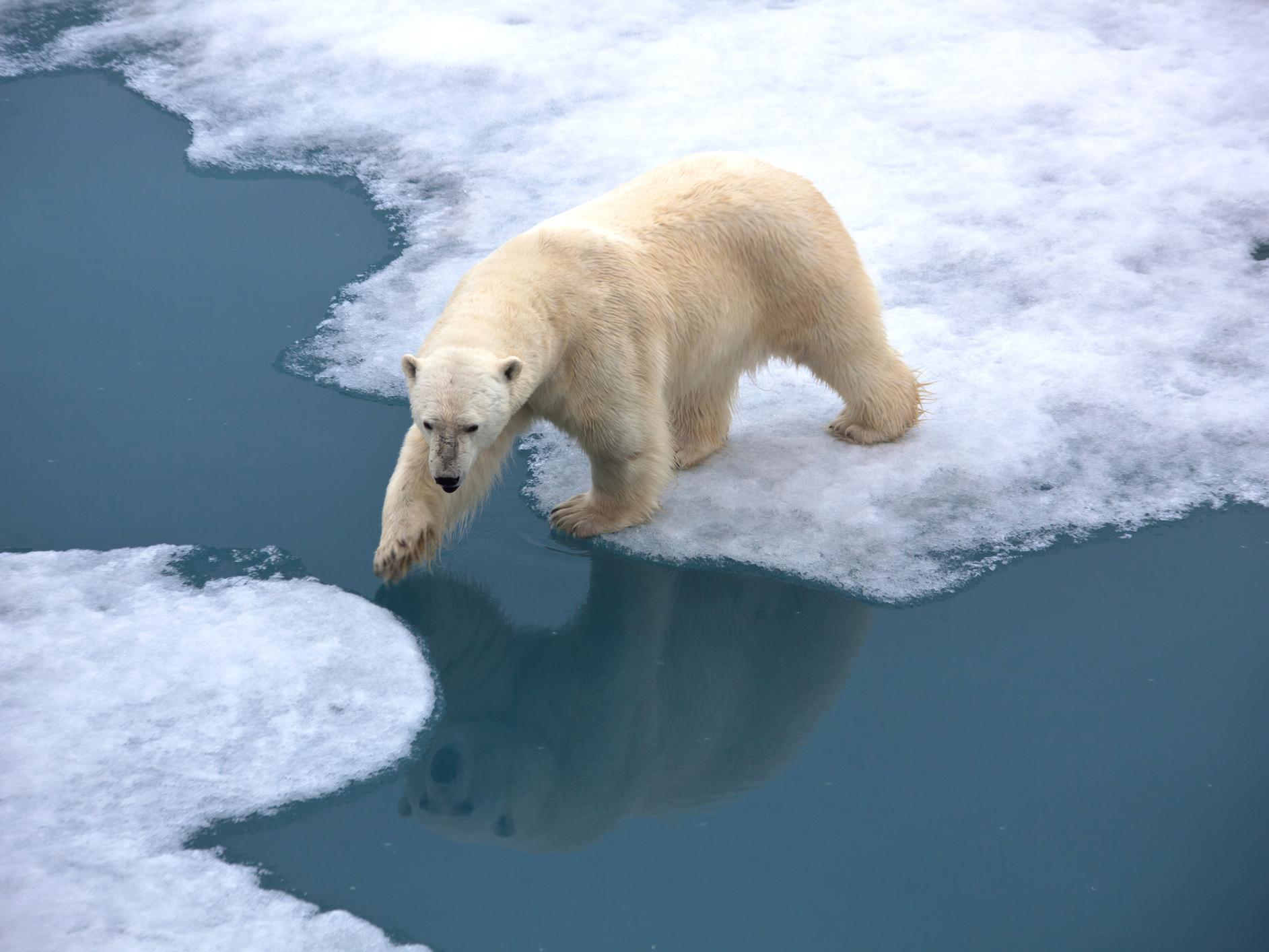Arctic climate 'report card' reveals ‘rapid and dramatic changes’ to the polar environment
Warming temperatures represent 'an emerging new normal' for the region, warns the US National Oceanic and Atmospheric Administration

Your support helps us to tell the story
From reproductive rights to climate change to Big Tech, The Independent is on the ground when the story is developing. Whether it's investigating the financials of Elon Musk's pro-Trump PAC or producing our latest documentary, 'The A Word', which shines a light on the American women fighting for reproductive rights, we know how important it is to parse out the facts from the messaging.
At such a critical moment in US history, we need reporters on the ground. Your donation allows us to keep sending journalists to speak to both sides of the story.
The Independent is trusted by Americans across the entire political spectrum. And unlike many other quality news outlets, we choose not to lock Americans out of our reporting and analysis with paywalls. We believe quality journalism should be available to everyone, paid for by those who can afford it.
Your support makes all the difference.The devastating impact of climate change in the polar regions has been confirmed by the US National Oceanic and Atmospheric Administration's (NOAA) annual Arctic Report Card
Authors from the American scientific agency concluded that 2017 was not a record-breaking year in terms of climate extremes, there was still evidence that the Arctic is warming at twice the rate of the global average.
The widespread environmental changes that arise as a result of this warming are beginning to define “an emerging new normal” in the region, the report said.
The year saw close to the warmest air temperatures ever recorded – second only to last year’s.
There were also above average ocean temperatures, continued loss of sea ice and various negative effects on the people and ecosystems of the Arctic.
Aside from the lowest ever measurements for maximum winter sea ice area, the authors reveal that ice is also getting thinner every year.
The report was released at the American Geophysical Union’s autumn conference in New Orleans.
“The rapid and dramatic changes we continue to see in the Arctic present major challenges and opportunities,” said Dr Timothy Gallaudet, acting NOAA administrator. “This year’s Arctic Report Card is a powerful argument for why we need long-term sustained Arctic observations to support the decisions that we will need to make to improve the economic well-being for Arctic communities, national security, environmental health and food security.”
The peer-reviewed report is made up of work from over 80 scientists from 12 nations, and aims to provide the most up-to-date information on the current status of the Arctic.
It is produced every year by NOAA in order to provide a general update on the region’s status and inform decision making.
This year, the publication also includes special reports on the impact of warming on the highly valuable Eastern Bering Sea fisheries, wildfires in the Arctic and the permafrost thaw that compromises Arctic infrastructure.
“This report is further evidence of the dramatic change occurring in the Arctic – from rapidly warming temperatures to dwindling sea ice to melting permafrost. And it’s not only the ecosystems, wildlife and people of the Arctic being affected,” said David Aplin, interim managing director for US Arctic programmes at WWF.
“The path forward is clear: climate change mitigation is absolutely vital. We need to reduce emissions, end our reliance on fossil fuels, and embrace a clean energy future – for the good of our planet, its people and wildlife."
Join our commenting forum
Join thought-provoking conversations, follow other Independent readers and see their replies
Comments